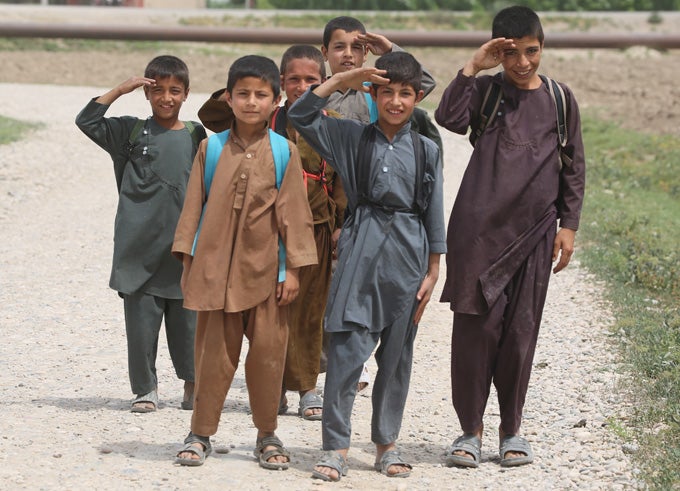
I am still shaken and saddened by the many lives lost to the attacks in Kabul two weeks ago and since then there has been more violence. As we grieve these tragedies, now is the time to stand strong with the people of Afghanistan and renew our commitment to build a peaceful and prosperous country.
To that end, we announced this week a new financing package of more than half-a-billion dollars to help Afghanistan through its struggle to end poverty, increase opportunity to help stabilize the country, and ensure all its citizens can access basic services during a time of economic uncertainty.
Afghanistan has come a long way since 2001 and achieved much progress under extremely challenging circumstances. Life expectancy has increased from 44 to 60 years, maternal mortality has decreased by more than three quarters and the country now boasts 18 million mobile phone subscribers, up from almost none in 2001.
Yet, the development needs in Afghanistan remain massive. Nearly 40 percent of Afghans live in poverty and almost 70 percent of the population are illiterate. The country needs to create new jobs for about 400,000 people entering the labor market each year. The situation is made more challenging by the return of around 5.8 million refugees and 1.2 million internally displaced people.
Our new support is in line with our belief that Afghanistan’s economic and social progress can also help it address security challenges. Our financing package meets the pressing needs of returning refugees, expands private-sector opportunities for the poor, boosts the development of five cities, expands electrification, improves food security, and builds rural roads.
Our support is made possible by the fact that the Afghan government has a clearly articulated development vision. It also builds on years of experience of delivering results in Afghanistan: This year we proudly celebrate the 15th anniversary of our work in Afghanistan.
Since the World Bank office reopened in May 2002, our support to Government has helped nearly 12 million Afghans access safe and reliable water, upgraded or rehabilitated more than 11,000 kilometers of rural roads, and built 1,137 schools and six teacher training colleges.
These and other achievements show that tremendous improvements in Afghanistan are possible, underpinned by international assistance together with the political will to continue reforms.
Despite this progress, much more needs to be done. We see five priorities to address to give all Afghans the opportunity for a better life.
- Firstly, prospects for economic growth are limited and conflict risks remain high unless aid is increased. The government, in its turn, must ensure that all public investments, including international aid, are prudent and support a coherent growth strategy.
- Secondly, Afghanistan’s development strategy should be built on agriculture and human capital investment. Improving agriculture productivity is the most direct way to improve incomes and create jobs. Investing in education and health is also vital – spreading growth to all parts of society is impossible when the majority of the population is illiterate and millions of children are out of school.
- Thirdly, Afghanistan’s mining and energy potential must be realized, as only extractive industries can provide enough government revenues and exports to offset expected declines in aid. These revenues will only help Afghanistan if managed well. This means concessions being competitively awarded, revenues managed transparently through the government budget, and rigorous anti-corruption standards being enforced.
- Fourthly, regional integration with neighboring countries should be encouraged. In particular, energy transit and trade, export opportunities in agriculture and extractives, as well as IT connectivity have the potential to generate more revenue.
- Finally, institutional weakness and violent conflict are not likely to be quickly resolved. Despite risks, Afghanistan needs to unlock the potential of private sector investment to promote economic growth. Policies and programs should encourage firms to invest, create jobs, and grow the economy for the benefit of all Afghans.
This article first appeared on Pajhwok Afghan News on June 15, 2017: http://www.pajhwok.com/en/opinions/our-commitment-people-afghanistan-stays-strong


Join the Conversation